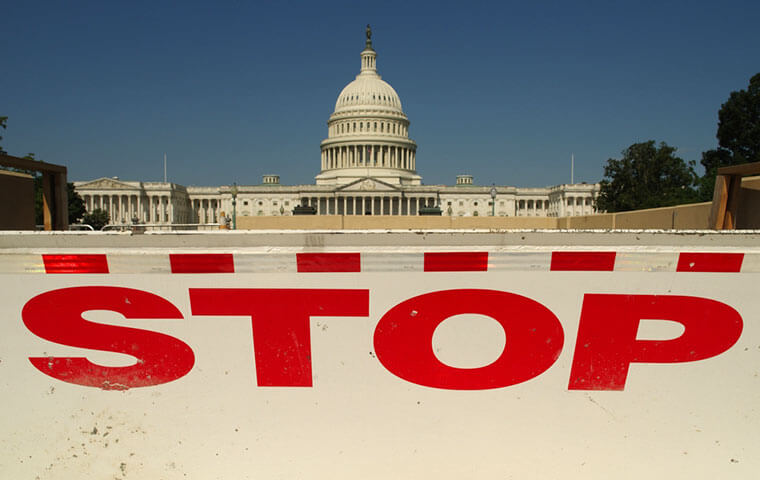 Any member may seek to delete a provision from a bill by invoking the Byrd Rule but another can in turn propose to waive the rule—waiving it, however, requires 60 votes. Image: Philip Yabut/Shutterstock.com
By: FEDweek Staff
Any member may seek to delete a provision from a bill by invoking the Byrd Rule but another can in turn propose to waive the rule—waiving it, however, requires 60 votes. Image: Philip Yabut/Shutterstock.com
By: FEDweek StaffMost of the federal workplace-related provisions under consideration in the wide-ranging budget bill pending in the Senate have hit a procedural roadblock there, with an internal ruling that they are not permissible in the bill as it is structured.
That structure is as a “reconciliation” bill, which requires only a simple majority to pass in that chamber, rather than the 60-vote threshold needed for all but the most routine legislation. The Senate Parliamentarian said those provisions—drafted by Homeland Security and Governmental Affairs Committee Republicans as part of that committee’s share of the bill—would violate the “Byrd Rule” against extraneous provisions in such a bill.
Provisions deemed to be running afoul of that rule are:
* Requiring that those first hired after enactment pay an additional 5 percentage points of salary toward retirement unless they agree to “at-will” employment that waives many of their civil service protections, on top of a separate 5 percentage point increase for all new hires.
* Allowing Presidents over the next 10 years to carry out agency reorganization plans without the involvement of Congress that was required in prior reorganization authorities.
* Charging federal unions for the value of time employees spend on-the-clock conducting certain union business on “official time” and also charging for the value of agency-provided office space and other resources.
* Requiring employees who appeal personnel actions against them to the MSPB to pay a $350 filing fee.
* Creating a new program of awards up to $10,000 for employees who disclose unnecessary spending, with the agency to return 90 percent of the savings to the Treasury and keep the rest for its own purposes.
* Requiring the USPS turn over to the GSA for sale its electric vehicles and the related infrastructure.
The impact of the Parliamentarian’s ruling is still to be seen, given the Senate’s complex procedural rules. Any member may seek to delete a provision from a bill by invoking the Byrd Rule but another can in turn propose to waive the rule—waiving it, however, requires 60 votes.
“The Byrd Rule is enshrined in law for a reason, and Democrats are making sure it is enforced,” said Sen. Jeff Merkley of Oregon, ranking Democrat on the Senate Budget Committee.
If those provisions were broken out into a separate bill or bills, all or nearly all of Senate Democrats and Democratic-voting independents could be expected to vote against them, defeating them.
The ruling does not affect several other provisions raised by the Governmental Affairs Committee, including requiring an audit of the FEHB program to cull out ineligible persons being covered as family members and charging a 10 percent fee on union dues withheld from federal payrolls.
Even before the ruling, there were complications from the differences between the Senate language and the bill as passed by the House. That version includes a similar choice regarding retirement contributions for new hires but at a lower level than the Senate’s, as well as the MSPB filing fee and FEHB audit provisions.
The House-passed version does not include the other Senate provisions, although it does include a notable one not in the Senate version. That would end the FERS retirement supplement for those newly retiring in 2028 and after, except for those under special retirement rules for law enforcement officers, firefighters and air traffic controllers.
The House version itself had undergone a number of changes during consideration there.
OPM Advises Agencies on Conducting RIFs During Shutdown
Updated Shutdown Contingency Plans Show Range of Impacts
Use Shutdown as Justification for More RIFs, OMB Tells Agencies
Unions Win a Round in Court Disputes over Anti-Representation Orders
Deferred Resignation Periods End for Many; Overall 12% Drop
Senate Bill Would Override Trump Orders against Unions
See also,
How to Handle Taxes Owed on TSP Roth Conversions? Use a Ladder
The Best Ages for Federal Employees to Retire
Best States to Retire for Federal Retirees: 2025

